 |
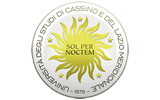 |
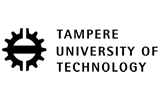 |
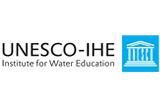 |
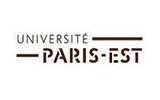 |
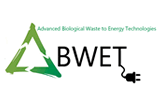 |
| European Union | University of Cassino | Tampere University | UNESCO-IHE | Université Paris-Est | Abwet |
ABWETDoctorate
Summary
The Advanced Biological Waste-to-Energy Technologies (ABWET) European Joint Doctorate (EJD) programme provides education and research at the PhD level on various environmental technologies that convert waste materials into bioenergy, training Early Stage Researchers (ESRs) to think globally and work expeditiously in multidisciplinary research teams. This will make ABWET PhD alumni attractive scientists and engineers for European universities, institutes and industry, able to contribute to solving the global challenges of waste management, energy scarcity and sustainable development.
The ABWET EJD is centered around environmental technologies for treatment of solid waste and biosolids, with a focus on anaerobic treatment processes, valorization of the digestate and biofuel clean-up. The ABWET EJD focuses on fundamental and applied aspects of different treatment technologies as well as on the development of innovative recovery and reuse technologies with enhanced market potential. A strong industrial participation will bring a close connection to practical problems, e.g. design, operation and monitoring of anaerobic bioreactors, land application of solid digestate and implementation of biofuel clean-up biotechnologies.
The ABWET EJD aims to continue the successful Erasmus Mundus Joint Doctorate Environmental Technologies for Contaminated Soils, Sediments and Solid Waste (ETeCoS3 - www.internationaldoctorate.unicas.it), which developed a joint PhD education and research curiculum with joint selection, supervision and PhD defence procedures. Moreover, the ETeCoS3 beneficiaries (University of Cassino and Southern Lazio - Italy, Universitéaris-Est ? France and UNESCO-IHE - The Netherlands) issue a fully joint PhD degree in Environmental Technology, recognised by the respective academic boards. ABWET will expand the degree awarding consortium with a 4th beneficiary, Tampere University of Technology ? Finland. A special Work Package (WP) is dedicated to adapt the ETeCoS3 consortium agreement and streamline the PhD graduation requirements so that ABWET graduates will receive a joint doctoral degree issued by the 4 beneficiaries.
The education of the ABWET PhD candidates (45 ECTS) will be organised based on the practise developed in the ETeCoS3 EMJD. An Individual Training and Supervision Plan (ITSP) is made for each early stage researcher (ESR), comprising mandatory and elective PhD courses, an annual PhD meeting and summer school, conferences, courses on research, management and transferable skills as well as language training. For the summer schools and conferences, synergies will be sought with relevant COST (European Cooperation in Science and Technology) actions (e.g. COST ES1302) and EIPs (European Innovation Partnerships on Water and Raw Materials (e.g. ID AG036). In addition to the ITSP, all ESRs will make an individual career development plan in order to assist them in designing their career paths and preparing them for the labor market.
Also the training through research approach adopted in the ETeCoS3 EMJD will be adopted: a research plan laid down in a PhD proposal, detailing research work (150 ECTS), including secondments to partners in academia and industry (50 ECTS). The latter will be done in collaboration with an international network of 17 partner organisations from academia, industry and non-govermental organisations (NGOs). ABWET ESRs will perform research in at least 2 countries. Supervision will be done in co-tutelle arrangements, providing ESRs with a supervisory team of at least 2 co-supervisors from the visited organisations and 1 from industry. The PhD dissertation and defence will be in English and ESRs are required to publish at least 4 papers in peer reviewed journals. Upon successful completion of the PhD programme, the ESR will be awarded a joint doctoral degree, fully recognized and accredited in the countries of the four beneficiaries.